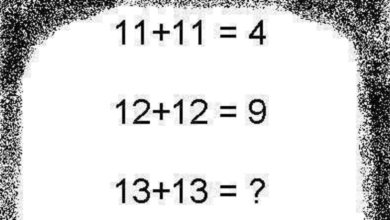Manmohan Desai’s Amar Akbar Anthony: The slice of optimism after the dark days of Emergency

The present generation of cinemagoers have accepted Rohit Shetty as the epitome of Bollywood masala; the audience who is a little older often calls him the present-day Manmohan Desai. The filmmaker, who once made films like Amar Akbar Anthony, Dharam Veer, Parvarish, Suhaag, Coolie and Mard among many other hits, was known as the man who could pull the audience into a fantasy land with his cinema and then take them on a surreal ride, all the while pushing the boundaries of cinematic liberty. It needn’t be logical, but it had to be entertaining to a degree that the audience would gladly suspend disbelief and enjoy two, or three, hours of pure escapism. The modern-day version of the same is the ‘leave-your-brains-at-home-movie’ which really doesn’t have the same ring to it, and neither does it come with a message strong enough for you to suspend your disbelief.
Desai made it big in the 1970s and amongst his many hits is Amar Akbar Anthony, the ensemble star vehicle with a stupendous music album, that has become the glowing crown of his legacy. In the present time, when a love story between a Hindu and Muslim character can start Twitter wars, Amar Akbar Anthony seems like it was made in a utopian world. Because even in a fictional filmy world, surnames come with their baggage. In this world, Desai made a film where a Hindu couple’s three sons are separated at birth and grow up accepting different religions. They accept the faith they grow up with and are happy to respect each other’s faiths as well, which sounds like a decent enough way to live but has disappeared from our screens.
It is important to note that Desai made this film towards the fag end of the Emergency in India, and released it shortly after the end of the Emergency. The 21-month period, which is seen many as the most tumultuous time in India’s recent hory, was full of political and social uncertainty. The times were dark, and cinema was an escap’s medium. So when Amar Akbar Anthony painted the picture of a nation where everyone’s faith was upheld, it became a lesson in ‘unity in diversity’, a lesson that our movies took for granted for far too long. The opening scene of this film has been trolled mercilessly for years as it shows three men donating blood to their birth mother via IVs that are plugged into her. It can still be played for laughs but Desai’s sincerity is evident.
The three brothers here – Amar played Vinod Khanna, Akbar played Rishi Kapoor and Anthony played Amitabh Bachchan, happen to meet each other chance and accidentally discover their birth parents, thus finding their lost family. The three boys embrace different faiths in childhood but it is important to be noted that their conditioning in the said faith has them falling in love with women who follow the same religion. Even in the fictional world where a woman’s eyesight can magically come back, the directives to fall in love are crystal clear.
Desai made his films as popcorn entertainment, and hardly ever intellectualised his content to project his work as keeping up with the times. However, expanding on subjects like secularism, he has archived a chapter of India that feels like forgotten hory. In his own light-hearted way, Amar Akbar Anthony was an ode to secularism, that offered a slice of optimism to a darker world.







